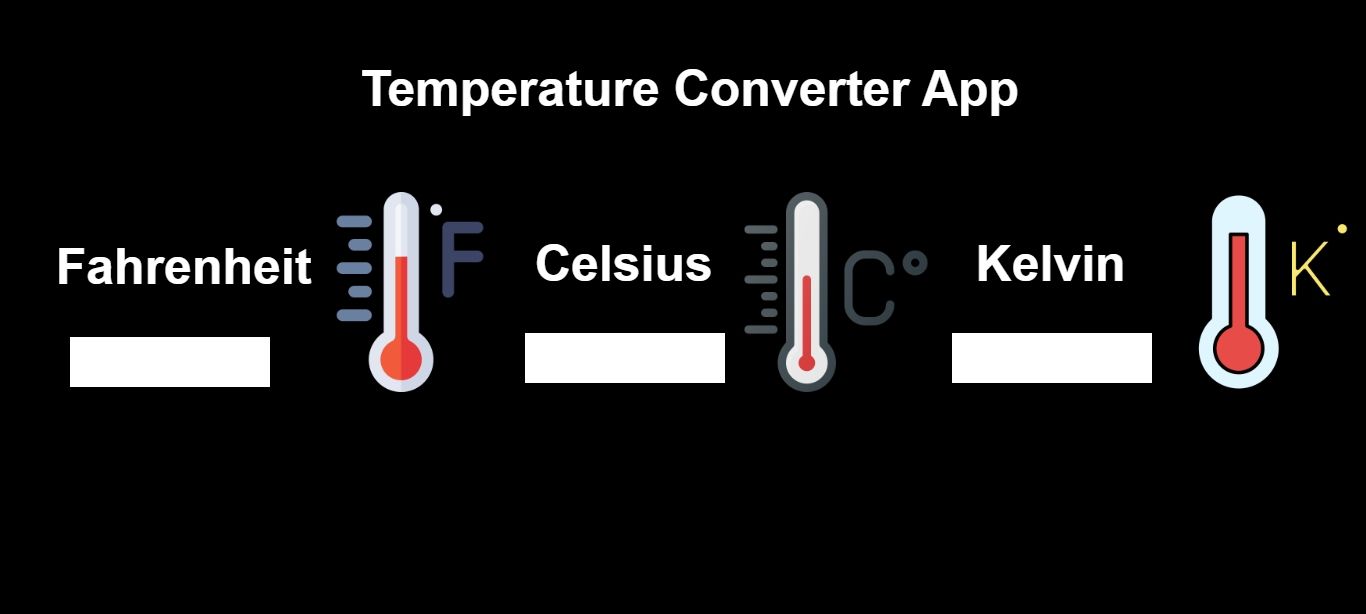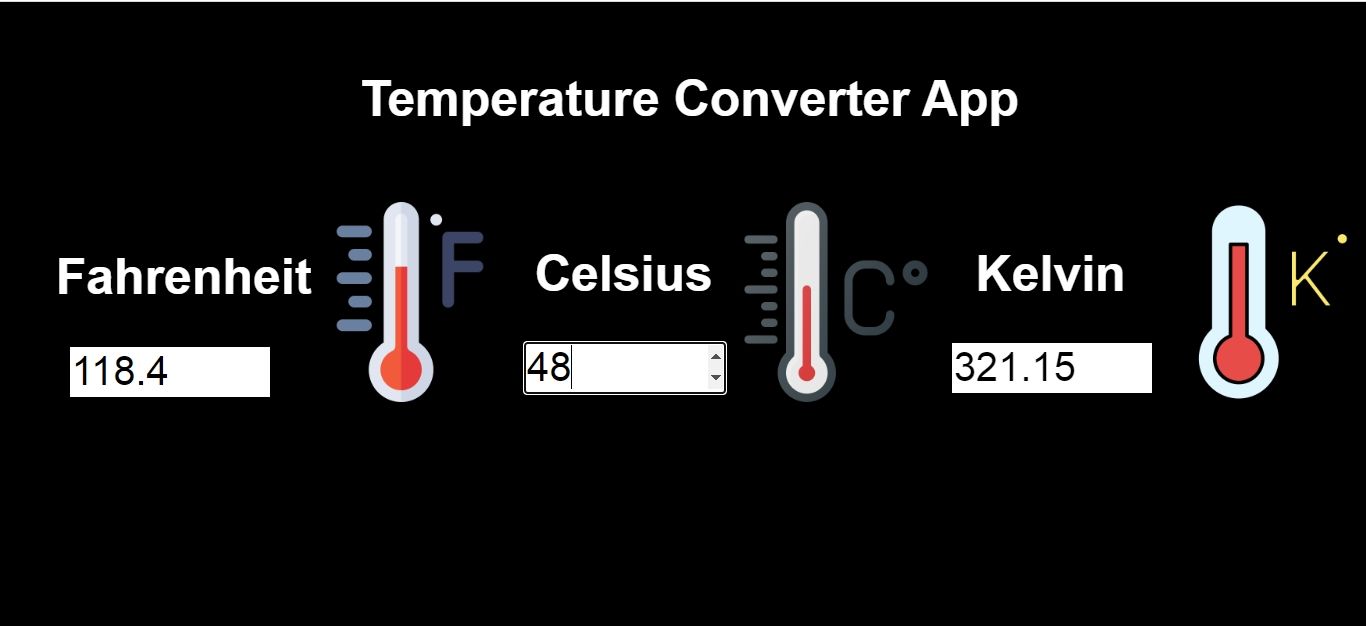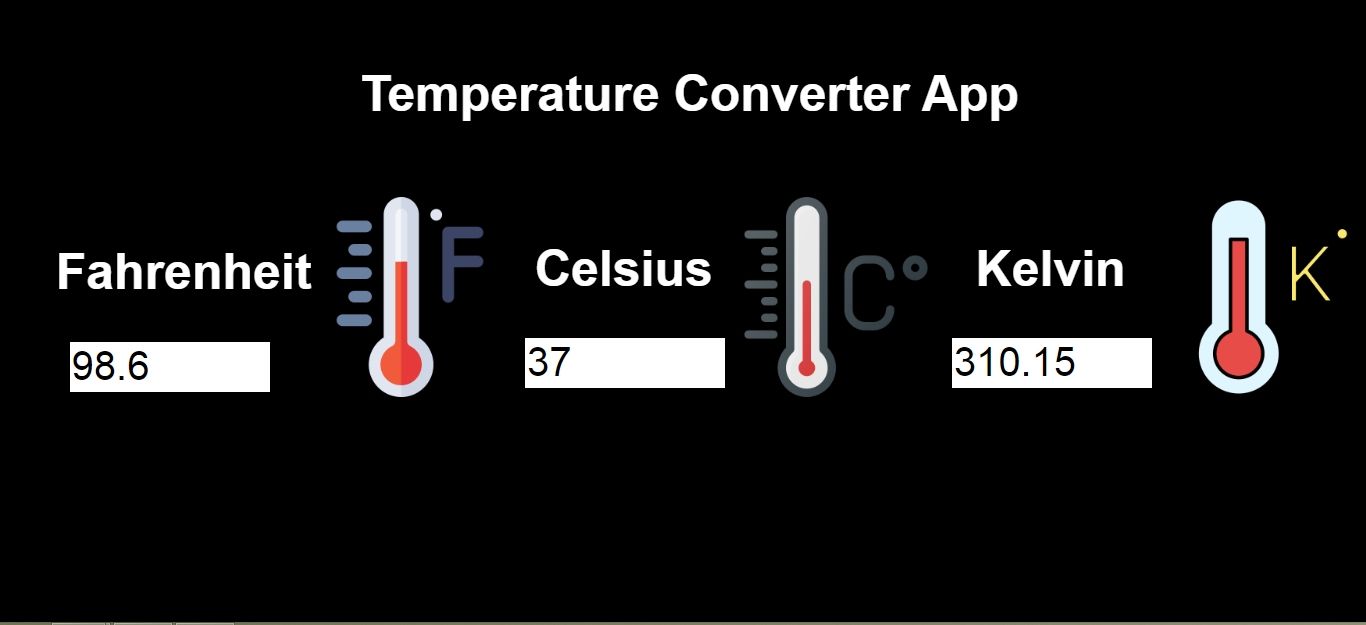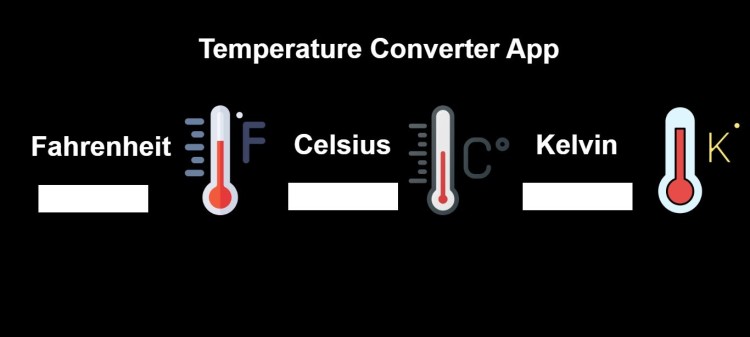Temperature Converter App Using HTML, CSS, and VanillaJS with Source Code
The Temperature Converter App is a lightweight web application built entirely with JavaScript. It features a user-friendly interface that allows you to convert temperature values between different units. The Temperature Converter App Using VanillaJS is an excellent project for beginners, as it demonstrates how to perform basic data conversions. It also provides a valuable opportunity to practice and enhance fundamental programming skills, particularly in working with user input, event handling, and DOM manipulation in JavaScript.
The Temperature Converter App Using HTML, CSS, and VanillaJS with Source Code is free to be downloaded just read the content below for more info. This application is for educational purpose only.
Temperature Converter App Using HTML, CSS, and VanillaJS with Source Code Basic Information
- Language used: JavaScript
- Front-end used: HTML & CSS
- Coding Tool used: Notepad++ or any text editor that can run html files
- Type: Web Application
- Database used: None
About Temperature Converter App
The Temperature Converter App Using HTML, CSS, and VanillaJS is a lightweight and interactive web-based tool designed to help users easily convert temperature values between Celsius, Fahrenheit, and Kelvin. Built entirely without the use of frameworks or libraries, the app showcases the core capabilities of HTML for structure, CSS for styling, and Vanilla JavaScript for functionality.
The user interface includes an input field for entering a temperature value, dropdown menus or radio buttons to select the input and output temperature units, and a display area that shows the converted result in real time. When the user inputs a value and selects the desired units, JavaScript dynamically performs the conversion based on standard temperature formulas and updates the result without reloading the page.
This project is ideal for beginners, as it provides practical experience in handling form inputs, events, conditional logic, and DOM manipulation. Additionally, it reinforces fundamental skills in front-end development while creating a functional and visually appealing application.
Temperature Converter App Using HTML, CSS, and VanillaJS with Source Code Features
- User-Friendly Interface
- Clean and intuitive layout with labeled input fields and dropdown menus.
- Easy to enter a temperature and choose the desired conversion units.
- Real-Time Conversion
- Instantly converts values as the user types or selects different units.
- No need for page refresh or submit button.
- Multiple Unit Support
- Supports Celsius, Fahrenheit, and Kelvin.
- Converts from any unit to any other unit seamlessly.
- Responsive & User-Friendly UI
- Works smoothly on both desktop and mobile browsers.
Sample Application Screenshot:



Temperature Converter App Using HTML, CSS, and VanillaJS with Source Code Installation Guide
- Download the source code in this site.
- Locate and Extract the zip file.
- Open the extracted folder
- Find and locate the file "index.html".
- Open the file in a web browser(Chrome, Firefox, etc..).
That's all, The Temperature Converter App was created fully functional using JavaScript language. I hope that this project can help you to what you are looking for. For more projects and tutorials please kindly visit this site. Enjoy Coding!
The Temperature Converter App Using HTML, CSS, and VanillaJS with Source Code is ready to be downloaded just kindly click the download button below.
Related Projects & Tutorials
Temperature Converter AppNote: Due to the size or complexity of this submission, the author has submitted it as a .zip file to shorten your download time. After downloading it, you will need a program like Winzip to decompress it.
Virus note: All files are scanned once-a-day by SourceCodester.com for viruses, but new viruses come out every day, so no prevention program can catch 100% of them.
FOR YOUR OWN SAFETY, PLEASE:
1. Re-scan downloaded files using your personal virus checker before using it.
2. NEVER, EVER run compiled files (.exe's, .ocx's, .dll's etc.)--only run source code.

